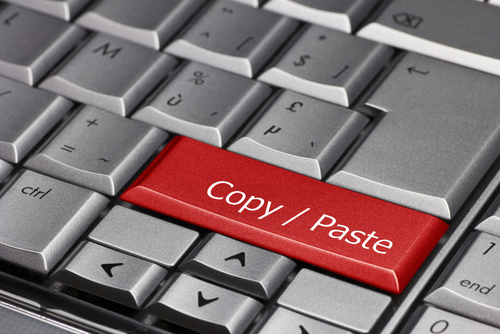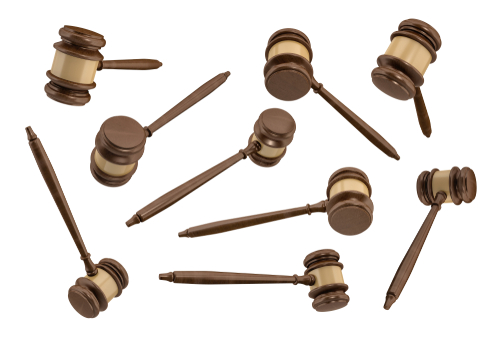3rd Circuit calls out lawyer for 'copy-and-paste' appeal, orders him to pay attorney fees

Image from Shutterstock.com.
A federal appeals court has ordered a Pennsylvania lawyer to pay his opponents’ appellate legal fees for filing a “frivolous” appeal and submitting a brief “that was essentially a copy of the one he filed in the district court.”
The 3rd U.S. Circuit Court of Appeals at Philadelphia attached to its decision the district court brief submitted by lawyer Joshua L. Thomas and a redlined copy of his appellate brief.
“Because the substance of this appeal is as frivolous as its form,” the appeals court said, “we will affirm the district court’s summary judgment and grant [the appellee’s] motion for damages under Rule 38 of the Federal Rules of Appellate Procedure.”
How Appealing noted news coverage by PennLive.com and linked to the March 19 decision.
Thomas “simply took the summary judgment section of his district court brief and copied and pasted it into his appellate brief, with minor changes such as swapping ‘defendant’ for ‘appellee,’” the 3rd Circuit said. “This is not proper appellate advocacy.”
The author of the March 19 decision is Judge Thomas Hardiman, who was said to have been on former President Donald Trump’s U.S. Supreme Court short list.
Thomas, a lawyer in Chadds Ford, Pennsylvania, did not immediately respond to the ABA Journal’s email and voicemail seeking comment.
The court ruled against Thomas’ clients, businessmen Desmond Conboy and Brendan Gilsenan, who were seeking to void their obligation to repay a loan from the U.S. Small Business Administration. The defendants included the Small Business Administration and the CBE Group, a collection agency.
The appeals court didn’t name Thomas in the body of its opinion, but the attached briefs carried his name.
The appeals court said the appellate brief’s first 15 pages of argument didn’t mention how the district court erred and addressed issues such as jurisdiction and venue.
“This left us with the suspicion that something was amiss with counsel’s brief,” the appeals court said. “Unfortunately, our suspicions were confirmed.” The lawyer had merely recycled “meritless arguments without engaging the district court’s analysis.”
Thomas also submitted “another copy-and-paste job” in his response to the Rule 38 motion for damages, Hardiman wrote. The document duplicated Thomas’ arguments when sanctions were sought in the lower court under different federal rules. The district court had refused to impose sanctions.
“It’s not easy to become a lawyer,” Hardiman wrote. “The practice of law is challenging, and even the best lawyers make mistakes from time to time. So we err on the side of leniency toward the bar in close cases. But the copy-and-paste jobs before us reflect a dereliction of duty, not an honest mistake. We will therefore affirm the district court’s summary judgment and grant CBE’s motion for Rule 38 sanctions after counsel for CBE files an appropriate fee petition and counsel for appellants has a chance to respond.”
In a series of tweets about the opinion, Howard Bashman, a How Appealing author and an appellate litigator, said the court had not held oral arguments in the case.
If it had, “the panel could have expressed its displeasure directly to this attorney and perhaps heard whatever defense he had to offer for his transgressions,” Bashman tweeted. “This appeal was probably briefed during the pandemic, when not everyone was operating at his or her best.”



